Demi: I found myself reading your #freewriting hashtag on Twitter, this series of short, meditative tweets that read like poetry, or affirmations, of quiet subconscious questions. It seems to be there for the sake of being there. It seems authentic in terms of there being no outward engagement. There is no explanation saying who the audience is or what the project is. It had a really profound effect on me. I’ll scroll Twitter and get to one of those tweets, and there’s a wave of calm that comes over me. This idea of strength comes along, which I may have perceived or projected onto you.
Rajni: I’ve really loved doing it; it’s helped me survive. It’s so different from most of the stuff on Twitter. I started doing it when I was writing a PhD—I really shut off from the world but was trying to keep sane and just keep going. Once a day I’d pick one tiny piece of writing from my many ten-minute sessions—something that was short enough to go on there—and I would put it on Twitter. It was a way of being in the world, and it somehow made me feel like I hadn’t completely disappeared.
When I finished the PhD, I brought it to an end. A few people said, “I’m gonna really miss it,” and that was kind of nice, but then I really missed it. I realized that I wanted to keep doing it. It’s been a challenge to myself to say, every single day, “I’m going to put something out there in the world.” I don’t want a gap between how I actually feel and how I present myself, and #freewriting was one way of trying to bridge that.
Can you be in the world the way you actually are?
I like being palatable, it allows me to get love from an audience. But it’s a weird exchange. It’s not healthy, and I get upset about having to perform it or be in it.
Demi: Last year when I had a breakdown, I decided to get off everything online because I just couldn’t exist in those spaces. I’m starting to learn I don’t think I can present as myself in those spaces. And that, in itself, builds shame. It’s really, really damaging.
Rajni: It is. I also fully believe that it’s important for us to know how to protect ourselves, to not put stuff out there when it’s not the right time. For me, this is part of a really long process of giving up making performance, leaving the UK, going through a huge change. I did it in order to be able to get to this place where I feel finally like, in my forties, I have some sense of the ground I’m standing on and where I am and where I matter.
Demi: Why is making work in this way so hard? I’m ashamed saying that because there are the women in my family, who lived through oppression at different stages of their lives, and then there’s me. I have the illusion of freedom, if that makes sense.
Rajni: But it’s almost because of that lineage... Because of that you have this space to start processing it. We’re the generations who actually get to feel that stuff in our bodies, but then to feel it is immense and overwhelming, even though things might have been worse or more difficult in previous generations. And those people were focused on different things—they weren’t able to do the work of processing.
I remember, when I was quite young, my mum telling me that she couldn’t cry. I’ve always thought that part of my role is to feel emotions for everybody in my family. They don’t really process emotions, and that’s part of who I am in the world and it’s part of the work I do. But it’s really complicated, isn’t it? I heard Roxane Gay describe an event she had been to where someone said: “Privilege has become weaponized.” And that just made so much sense to me. I think privilege needs to be recognized and accounted for, but not weaponized.
I found your work through Twitter. I don’t remember how but I found it, but I remember feeling that you were doing things that were important. I’m curious to know how you take care of yourself as you make work directly confronting the many questions we live inside of in terms of racism and its intersections. You really address them, and you’re very frank. You speak about things in your voice, in your public voice. How does that feel?
Demi: That’s so interesting to hear, because I make work from a real dysfunctional place, but I don’t know what else to do at the moment. I came to the realization that the work I’m making is pleasing to people, and if I take that formula and go with it, I could be really successful. But I don’t think it’s doing what I want it to do for me or for my communities.
I’ve realized through therapy and a twelve-step program that one of my ways of dissociating, of coping, of protecting myself, is to become a hyper version of myself: Funny Demi. I am really good at making people feel good. That’s how I’ve marketed myself, that’s what I am now to people. I’m palatable. I like being palatable, it allows me to get love from an audience. But it’s a weird exchange. It’s not healthy, and I get upset about having to perform it or be in it.
Then there is ego. I’m twenty-eight years old. My partner works in the fashion industry. I live in a world where everything is visual and beautiful and loud. I never feel settled. Every morning I wake up, and I meditate and write intentions. It’s the same intention every day: to have pure acceptance. When is that going to happen?
A lot of white people in the industry will deny that they dehumanize people. But we all do it on some level. We have to categorize to not just be overwhelmed all the time.
Rajni: I have a massive ego! It takes a lot of work to wrestle with it sometimes. I feel like I have two voices: one of them is quiet, one of them is loud. I have spent a lot of time nurturing my quiet voice, to the extent that my quiet voice is actually really loud, super confident. People really know it. And I can be that person in the world, which I love, because I think the world lacks quietness and listening. But my loud voice is skittish and hasn’t been nurtured. I don’t know how to access it. That’s my challenge. I also want to like that voice. I’m ready to try and find that place.
Maybe it’s more like a reverse for you, that the loudness feels more easily accessible?
Demi: Loudness was always a point of praise. I’ve been in spaces where loudness was everything. So you just be louder.
Rajni: When I started making performance, I did all of that stuff around marketing and being seen. It’s not like didn’t. I loved having a career and being part of a scene. And, in a way, I talked about what it means to be subjected to racism and sexism and all of those stereotypes. I was working with those things directly, especially as somebody who works with their own body. But in another way I just wasn’t. It was too painful to acknowledge the reality of working within a sector that was still very racist but had this veneer of niceness.
Demi: Veneer of niceness! You get fooled by it, I got fooled by it. And then it hits you.
Rajni: What I genuinely want is to be friends with the people I’m working with, for them to be people I can trust. I do not believe that’s too much to ask. But it has gotten me into trouble. Because many friendships were actually career relationships that were really slippery, or were based on ways of seeing a person and categorizing a person. It’s insidious. And because I have had a lot of privilege in my life, it wasn’t like these things were screaming at me. They were less obvious than that, but still so harmful.
Demi: Really, really harmful.
Rajni: Now I consciously try to surround myself with queer people of color, because that’s where I make some sense. It doesn’t mean I can only be in those spaces. But I didn’t realize for a long time that I had to actively make that happen in my life.
Demi: It’s such a process. I’ve started to see a correlation between how artistic directors of festivals and platforms may see me: always using the words black and brown bodies, talking about people like they are cattle. It’s really easy to put people into places in your brain, to dehumanize them, and I didn’t think I was capable of doing that. But when I worked for a mental health organization here in the UK, part-time, I found myself categorizing people. To protect them, but also to protect me. “This is this kind of person, this is what they need.” When you are in a position like that, you do it to a certain extent.
A lot of white people in the industry will deny that they dehumanize people. But we all do it on some level. We have to categorize to not just be overwhelmed all the time.
Rajni: Yes, so you’re constantly making peace with that process, trying to see someone’s full humanity. And it takes work. It takes work in this industry, especially when, as a festival director or programmer, you’re going between these spaces of holding a project sensitively—taking care of people and being ethical—and writing a funding application where you describe those people in categories because you know you’ll get the money. I had to do that as a producer of my own work too. More and more that became a problem for me, until I didn’t feel like I could do it any more. But that’s the reality of working in this industry.
Tangible, sellable things. That’s what makes money, but it hurts my soul. To have a practice and to have a product are two completely different things.
Demi: When I first found your work, I found one of the most stunning images I’ve ever seen—you surrounded by fire.
Rajni: Yes! That image was made with Lucille Acevedo-Jones and Manuel Vason in 2006. I love a good image. I’m a very visual person too. Recently I’ve gone more and more towards the quiet and the near-invisible, partly because I felt like that was what was needed in the world. But I’m recognizing that there’s something else in me, and if I die and I haven’t also shared that other thing, then that would be a shame. My loud voice is inarticulate and from the core—it’s a very vulnerable place. Now I want to find a way to be that without only lending the image of my body to other people, other organizations, who want to use it to represent themselves.
Demi: It’s the loudness that generates money. I want to be an artist who is really considered and really quiet. Detailed. I hope I get there.
Rajni: You’re already doing that work. Think of your work holistically: you are meditating every morning, you’re doing all of these practices and nurturing them. Even if that’s not the focus of your performances right now, it doesn’t mean it’s not there. It is.
Demi: For ages, when I was asked what I did, I would say all my practices and then do a spiel about what I like doing. Honestly, it didn’t dawn on me till last year that I was using the word “practice.” What does that actually mean? I want to be practicing. A gentle way, quieter.
Right now, I’m led by product-based work: making shows that will tour, podcasts that people can listen to, commissioning objects, and curating magazines. Tangible, sellable things. That’s what makes money, but it hurts my soul. To have a practice and to have a product are two completely different things. I think that’s why I’m inspired by you.
Rajni: For me the shift was a literal thing—I gave up making performance, and then I ended up moving to another country too, really far away. It was only by walking away from having a “career” as an artist that I was able to think about my own practice in a more holistic way. But there are so many ways of doing it. It will make sense differently depending on who you are, what you need. It’s about listening for when you want those shifts, when you are ready for them.

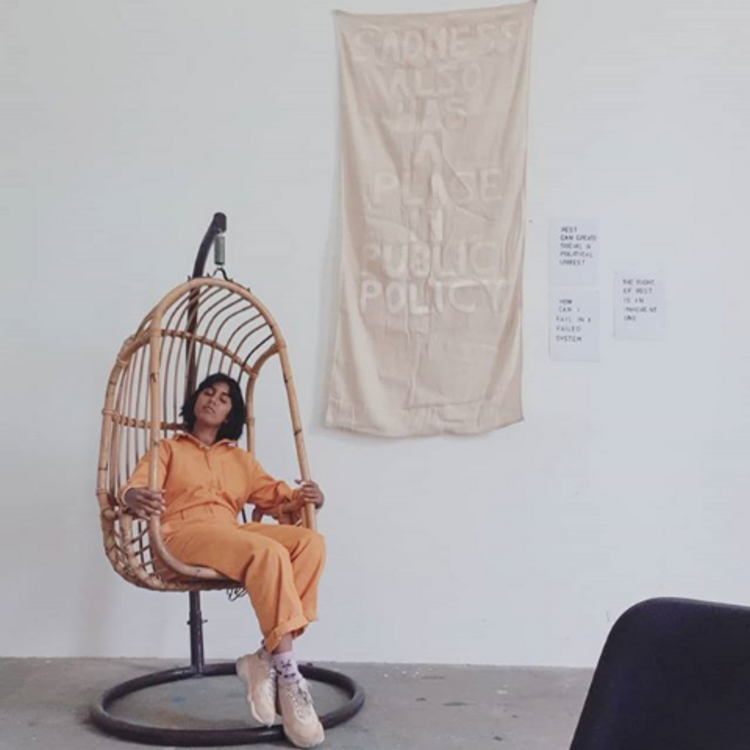
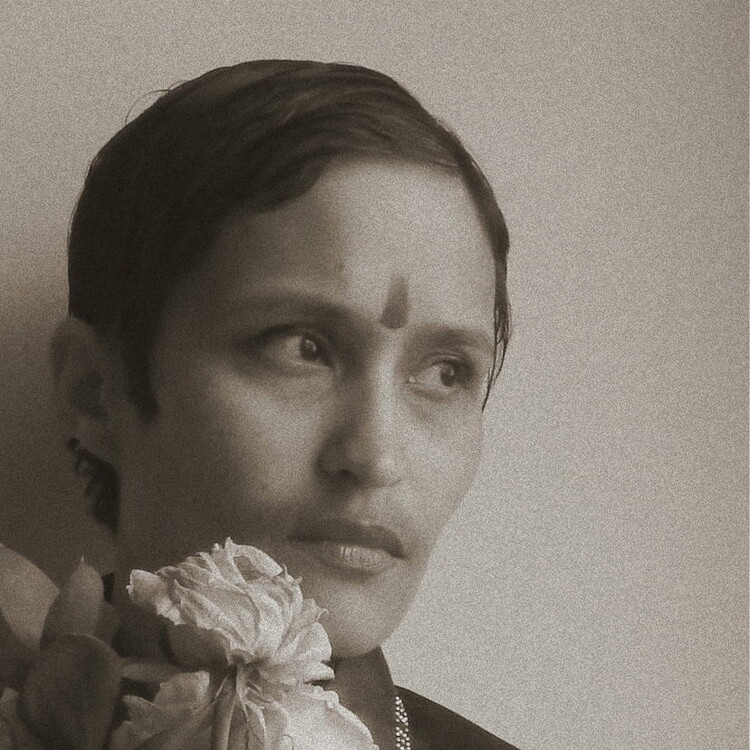
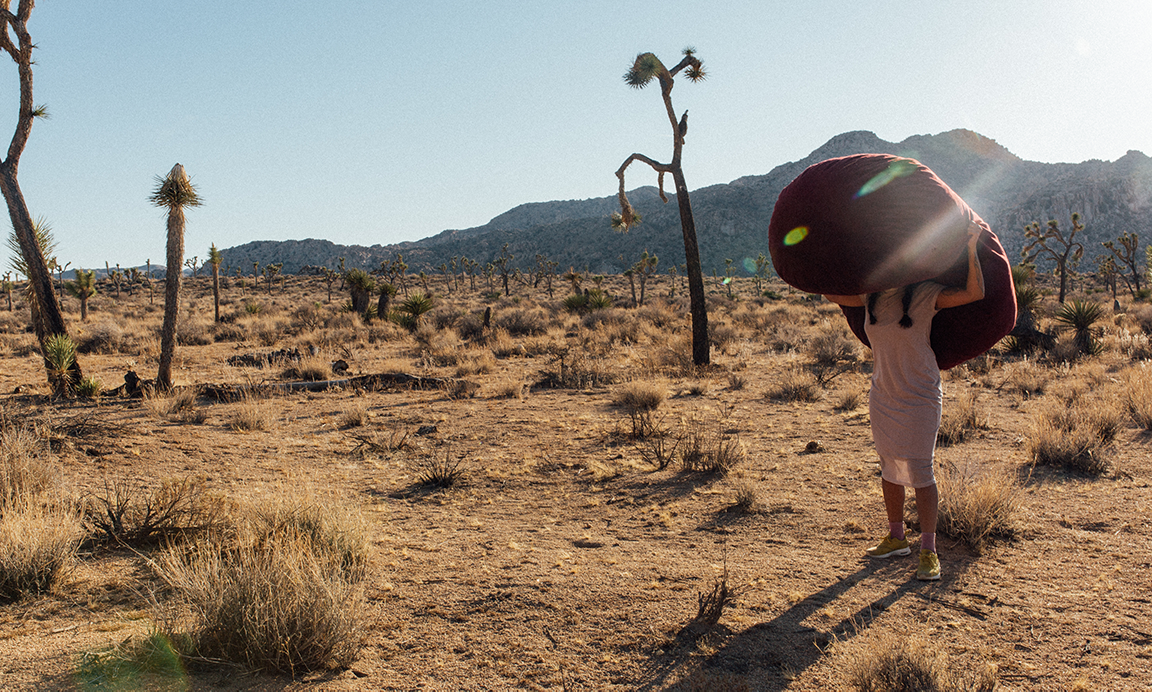
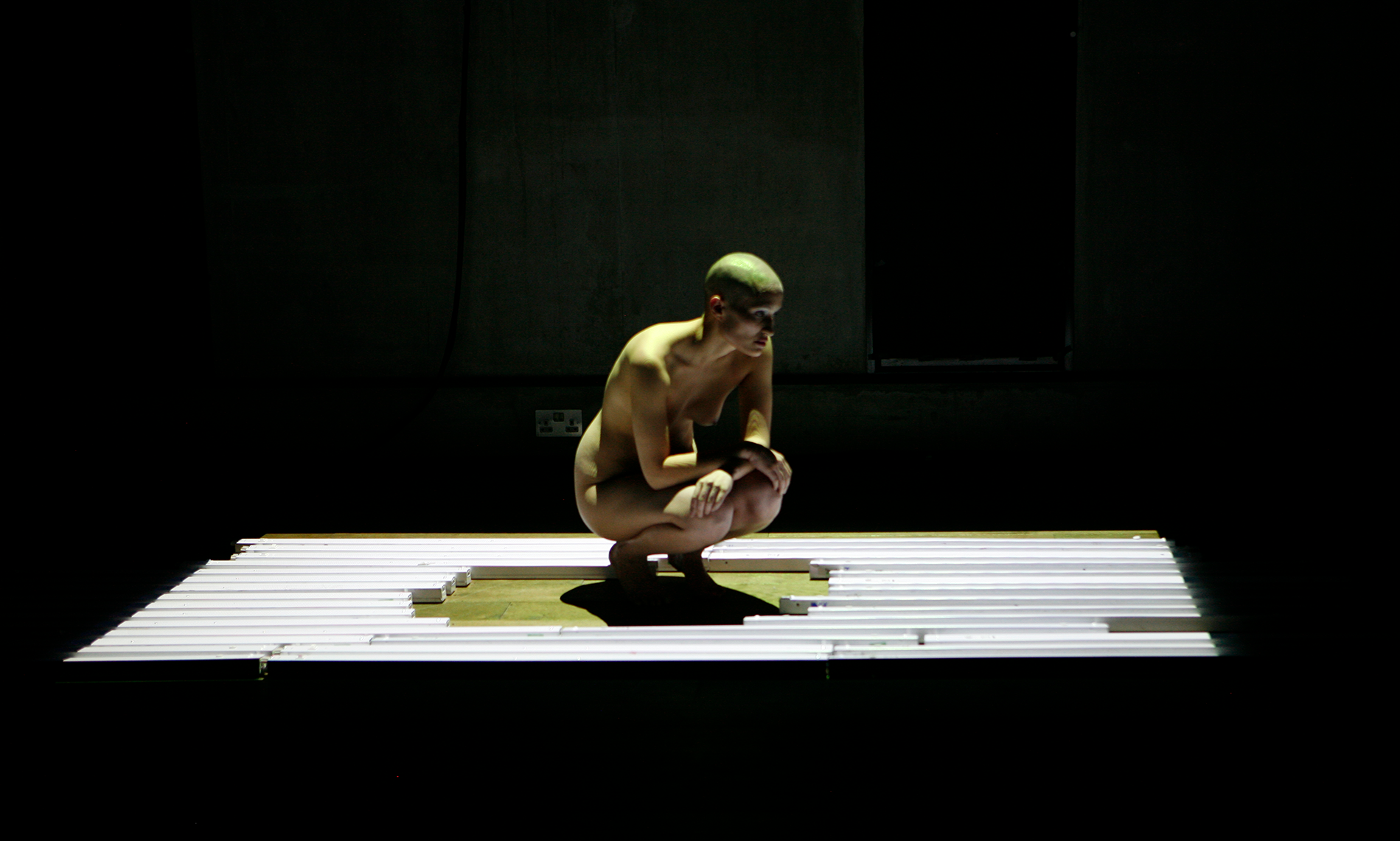
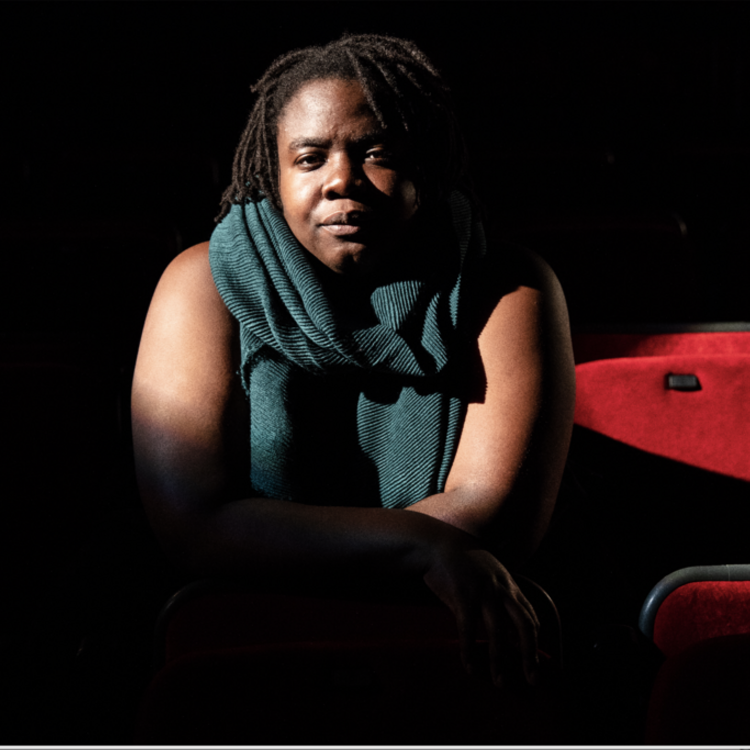
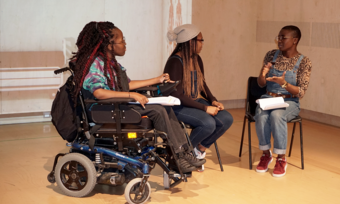


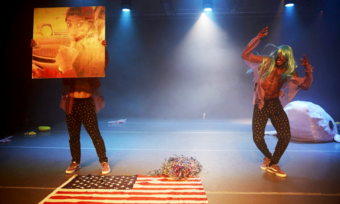


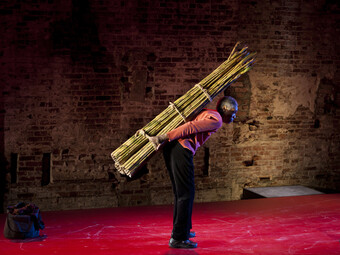


Comments
The article is just the start of the conversation—we want to know what you think about this subject, too! HowlRound is a space for knowledge-sharing, and we welcome spirited, thoughtful, and on-topic dialogue. Find our full comments policy here